In Ghana, road accidents account for many deaths each year. According to the Motor Traffic and Transport Department of the Ghana Police Service, between January and November this year, 13,675 road crashes were documented in Ghana. These crashes resulted in 2,171 deaths, while 14,239 were injured.
Some of the major causes of these road accidents are the increasing number of wrongful overtaking and over speeding due partly to the incompetence of the drivers.
Watch documentary here:
Kwame Koduah Atuahene, Head of Regulation, Inspection, and Compliance at the National Road Safety Authority (NRSA), explained that some of the fraudulent ways of acquiring a driver’s license are disturbing as according to him, driving is a risky activity which requires validated expertise.
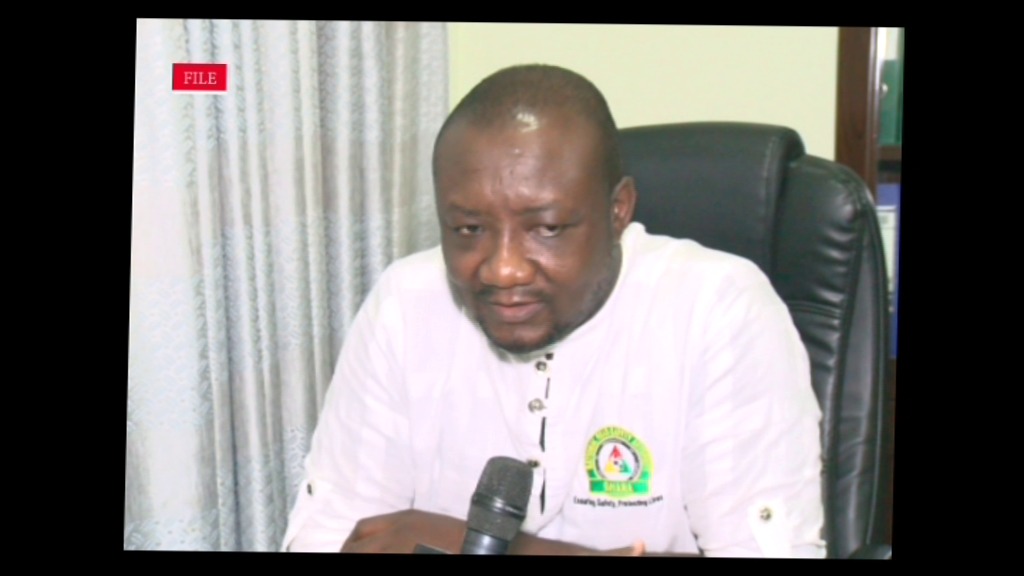
According to him, the law requires applicants to meet three conditions: Applicants are required to pass a theory test, an in-traffic test and a physical fitness test, hence, a deficit on any one of the three, gives concern for the task required of a driver.
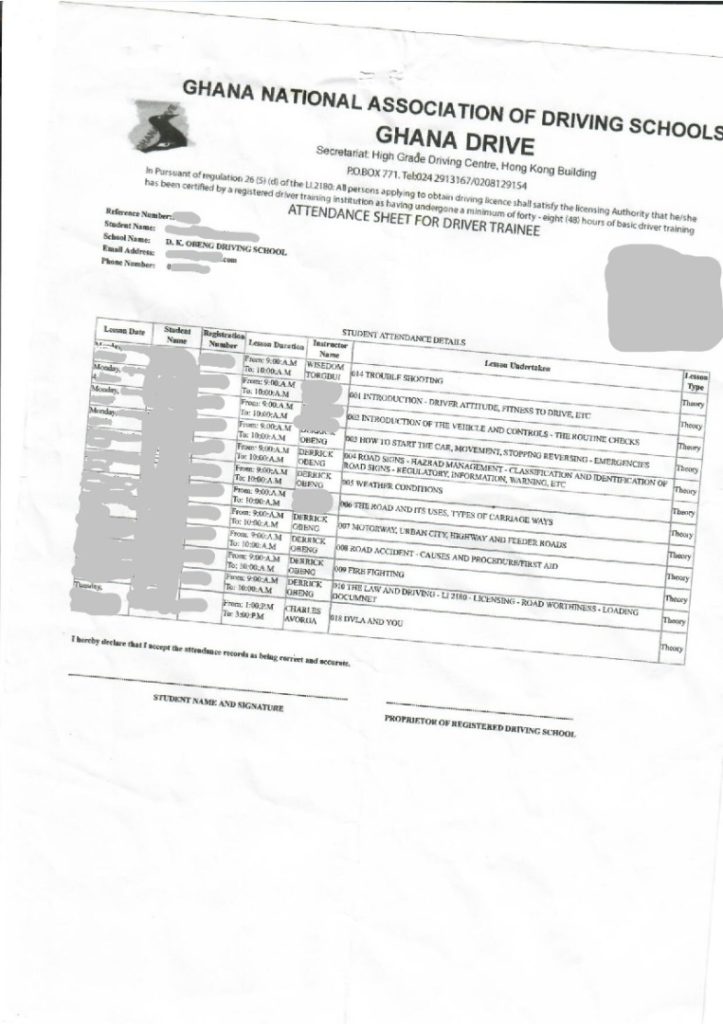
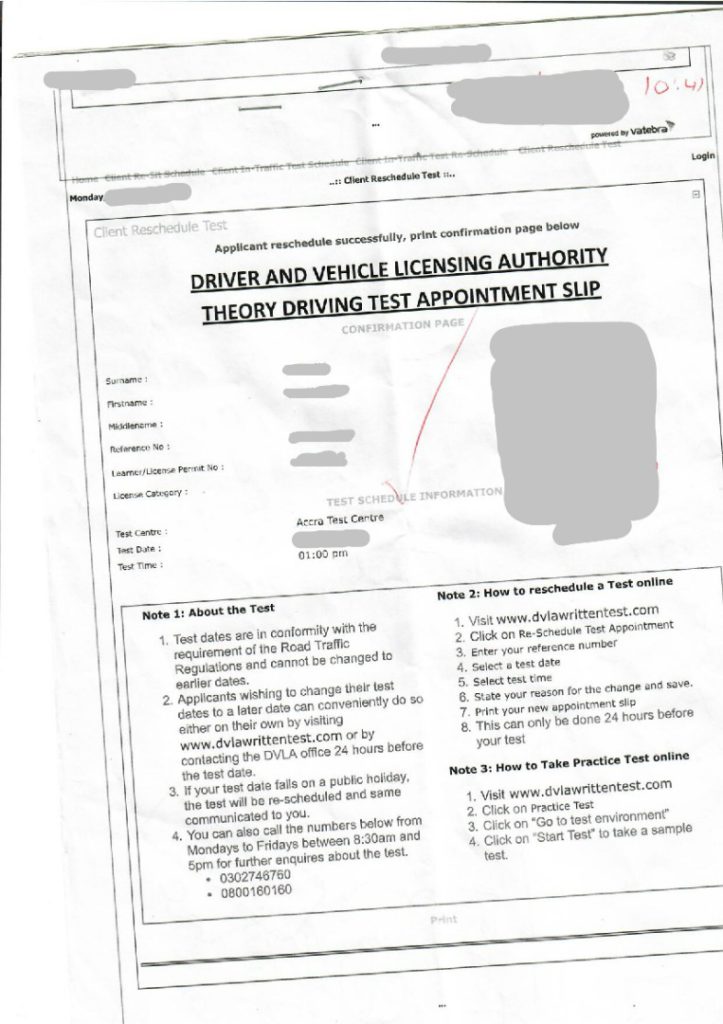
“If you are not physically fit, you may have the skill to drive but you don’t have the knowledge. The knowledge will require that you have a sense of how to be safe in a road safety environment or on the road. Your ability to move a vehicle forward and backwards does not qualify you as a good driver,” he said.
The Ghana Private Road Transport Union attributes carnage on the road to unqualified drivers who have no idea about such critical road safety issues such as the functions of saloon cars being fundamentally different from trucks, hence the necessary requirement to go through proper process at the Driver and Vehicle Licensing Authority (DVLA) to acquire specific license for specific vehicles.
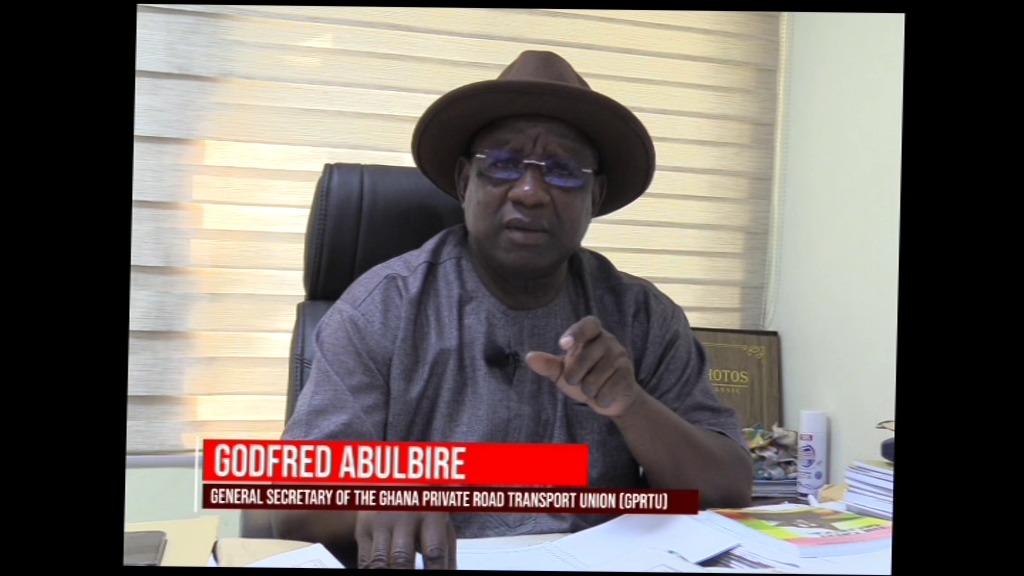
Having introduced new reforms in 2012 and 2014 to curb the rot in acquisition of drivers’ license in Ghana, Corruption Watch’s Investigative Journalist, Francisca Enchill, set out to investigate the entire process for the acquisition of driving license at the DVLA.
The investigation was carried out in two regions, the Greater Accra Regional Office located at 37 and the Tamale Regional Office in the Northern Region.
Officially, DVLA has specific requirements that all applicants are required to meet before becoming licensed drivers.
However, this investigation captured DVLA officials of different categories with some operating through agents, as well as security men who solicit for money to outwit the official mandatory requirements for personal financial gains in total disregard for the danger their actions pose to human lives.
Applicants who meet the illicit cost of between Ghc1,200 and Ghc1,800 which is more than 100% of the official cost avoid the mandatory 48-hour driving school enrolment requirement, computerized examination, in-traffic driving test and the road sign test to become licensed drivers at the DVLA 37 office and Tamale office without the officials evaluating the capability of the applicant to drive.
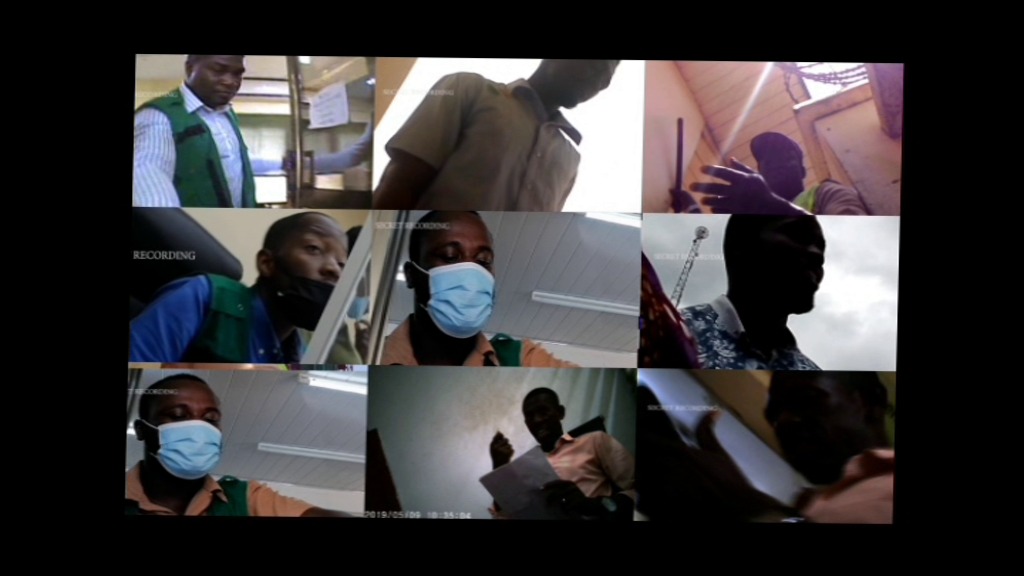
The officials even aid applicants with eye problems to pass the mandatory eye test process during the capturing of bio data at the Stage 1 of the application process instead of allowing the natural process which will refer applicants with eye problems to specialists for solution.
Mandatory Driving school requirement
In 2014, DVLA introduced the mandatory 48- hour (10-working-days) driving school training requirement as the first requirement to start the license acquisition process.
However, this investigation established a fact contrary to what is required by law at the DVLA 37 office. The entire mandatory knowledge acquisition at a driving school requirement has been reduced to a mere purchase of a reference number by staff at the 37 office.
The investigator, after learning that the driving school reference number was on sale inside DVLA at varying rates of Ghc150 and Ghc200, identified the Premium office as one of the main points of sale. At the premium office, the unlawful sale appears institutionalized as staff attach the unlawful price of the reference number to the cost of the Stage 1 of the license acquisition.
During payment, the investigator was asked to pay the Stage 1 fee first, after which an official receipt was issued. The investigator was then directed to pay an additional Ghc150 for reference number to the next official. The official, after receiving the money gave the official receipt to the investigator. The official receipt had the cost of the Stage 1 printed. The Ghc150 paid for the reference number was, however, hand-written on the same receipt by the DVLA official.
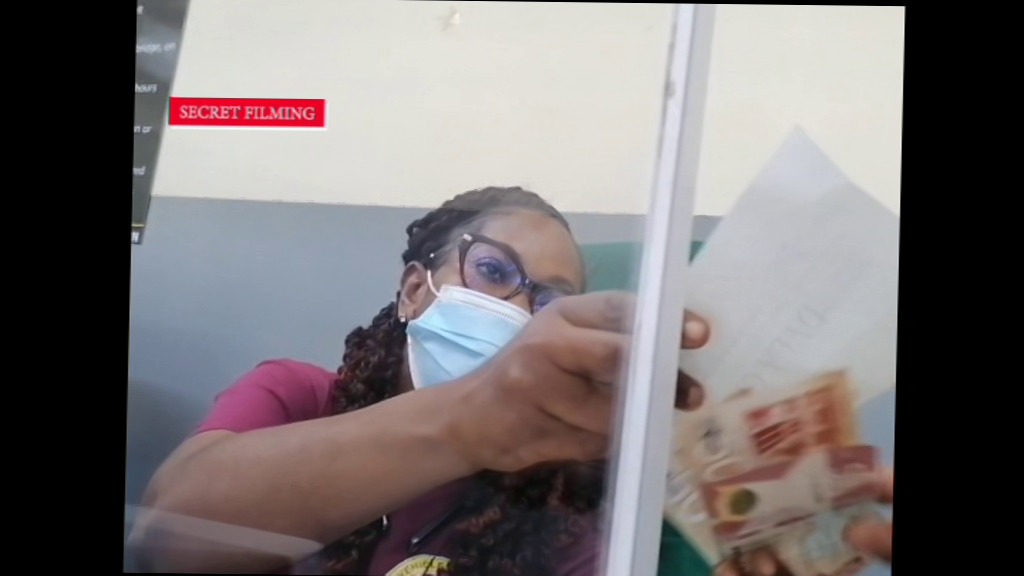
This investigation found that once the reference number is sold right inside the premium office, the applicant skips enrolling into a driving school for the 10-day training. However, DVLA staff are able to produce the reference number and attendance record for a driving school he/she never attended.
According to Mr. Kafui Semevo, Director, Driver Training, Testing and Licensing at DVLA, the reference number/driving school code is not supposed to be sold at DVLA or by DVLA officials.
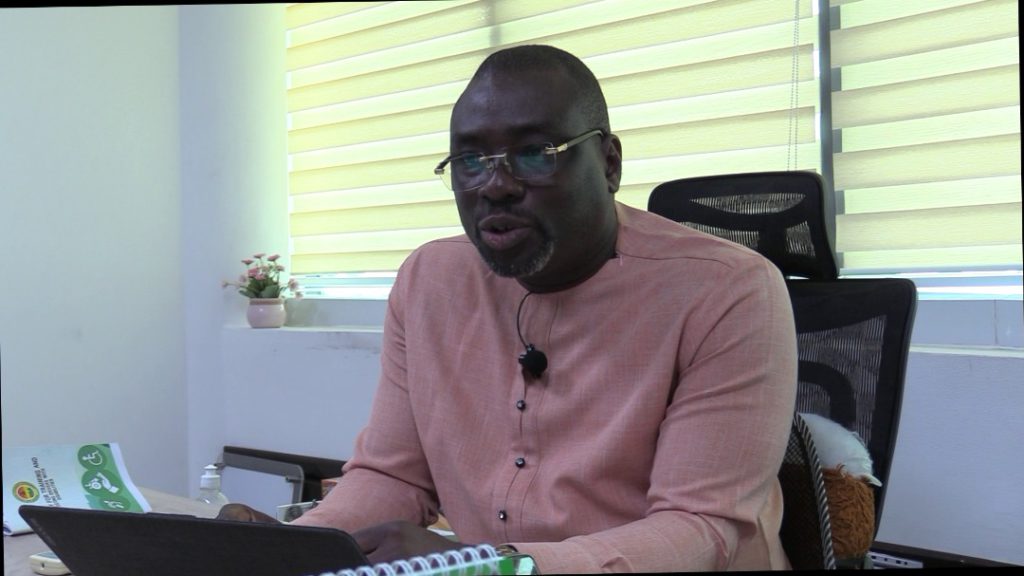
This investigation also found that aside from the sale of the reference number at DVLA, some driving schools were also involved in outwitting the system to get applicants license at DVLA without meeting the requirements.
STC
Francisca Enchill visited the State Transport Company (STC) Driving School, the most respected driving school in Ghana, in an attempt to meet the driving school requirement of DVLA. After disclosing the purpose of the visit to the receptionist, she called another staff member, an Instructor on the phone and referred the investigator to him.
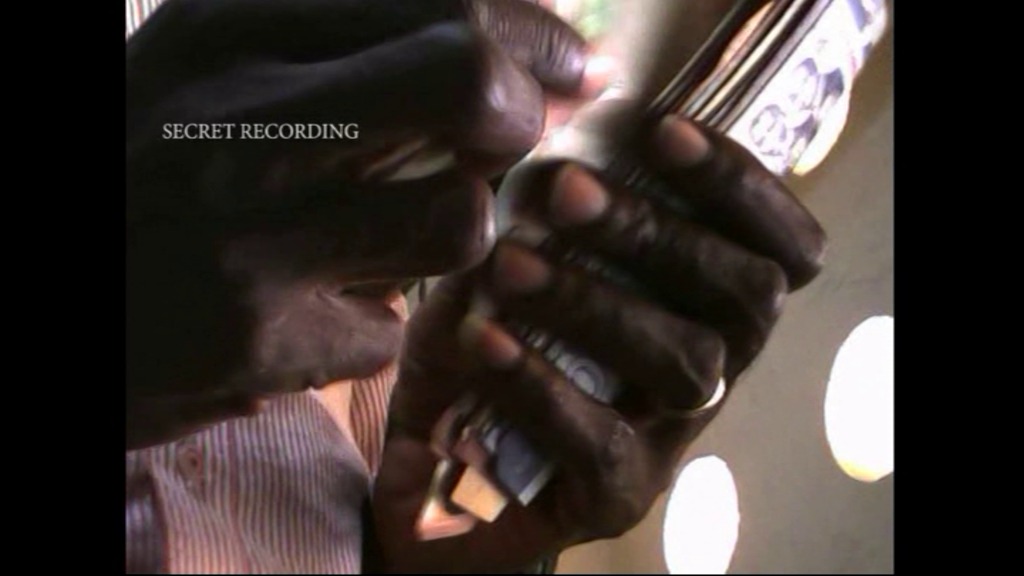
She then shared the contact of the Instructor with the investigator and advised the investigator to inform him she wanted an express service which she said would attract more charges.
The investigator called the Instructor on phone as advised and he made an offer of Ghc1,300 to help get her the license in a week without going through any of the required tests. This he said was what the receptionist meant by asking for express service. According to him, part of the money is used in ‘sorting out’ DVLA officials.
STC’s OFFICIAL RESPOSE
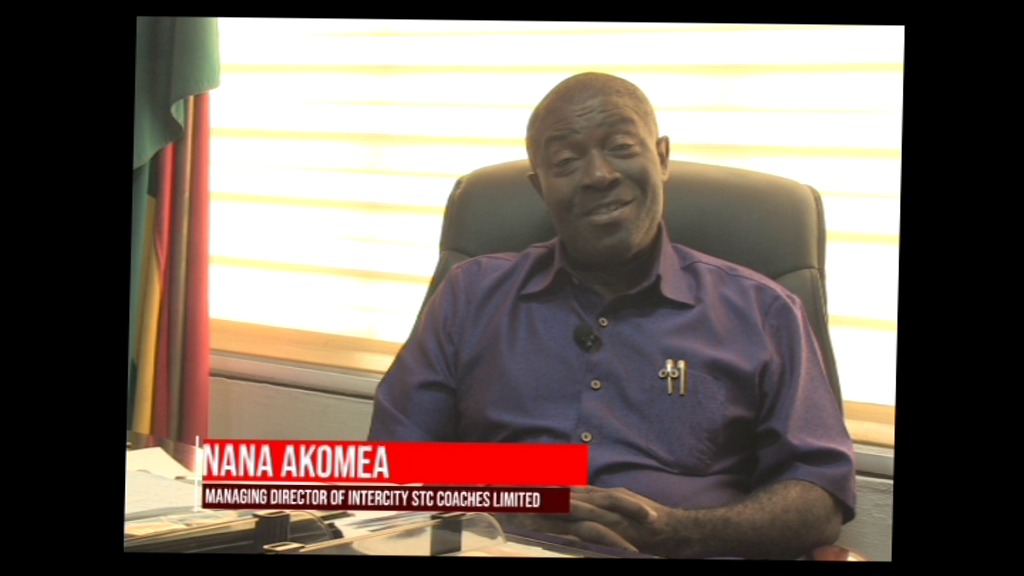
When the Managing Director of Intercity STC Coaches Limited, Nana Akomea, was confronted with the action of a member of his staff, he described the offer as unlawful and outlined the official process.
The official process, he said, required that every driver’s license applicant goes through the mandatory 10-working-day theory and practical driving school training even if the applicant already drives.
Even already licensed drivers are made to undergo compulsory theory and practical training again before being accepted to work for Intercity STC so why will any applicant be exempted from undergoing the training simply because he already drives? That is not acceptable, he said.
According to him, the action of the staff, as captured during this investigation drags the name of the institution into disrepute, caused financial loss to the school as well posed the risk of contributing to road accidents as untrained and unvalidated drivers are unlawfully aided to become licensed drivers.
He assured that the culprits would face the necessary disciplinary action.
STC Instructor
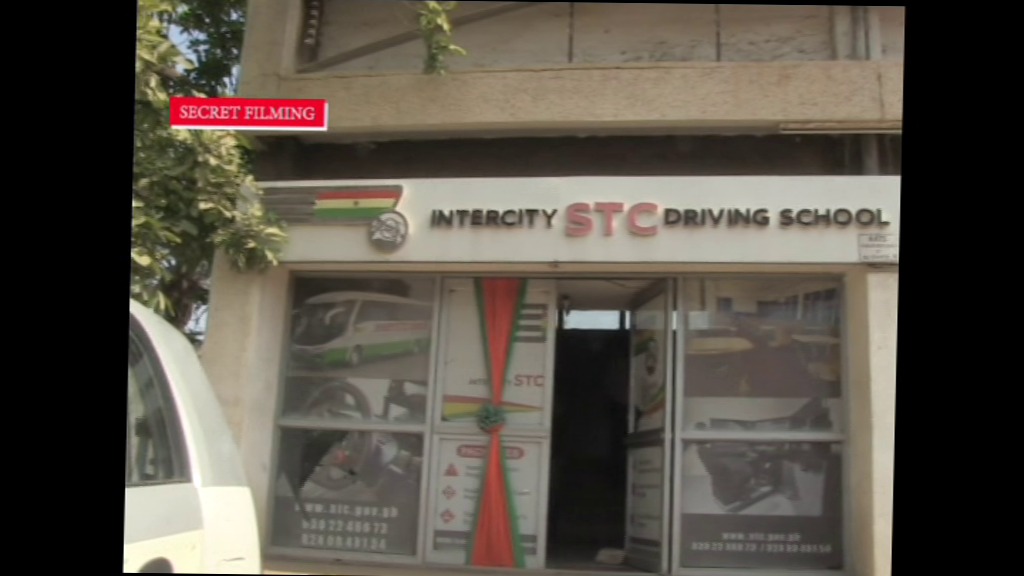
The Instructor set a date to meet the investigator to start the process and this meeting happened inside the STC Driving school where he explicitly gave his offer.
During this meeting, the investigator requested for the GHc1,300 charge. A request he turned down saying:
It is a risky business, hence the lack of reduction. It is a risk because the person is unable to verify your ability to drive and takes decision strictly on my recommendation as your driving instructor.
The priority is the money, you don’t have to write any examination. Just pay the money, we capture your bio details and the next call you will receive from me is for you to come and pink your license. That’s all, the Instructor said.
The Instructor thereafter took the investigator to DVLA 37 office where he received payment for the illicit deal and took the investigator through the capturing process. One week later, the investigator received the license as promised.
This investigation established that officials involved used gaps in the official license acquisition process, deceit, greed and fraud to sway applicants into acquiring the license using their corrupt ways, disregarding verification and validation of applicants and its implication on road safety.
Computerized Exams
In 2012, DVLA in an effort to fight the rot in the examination process at the time introduced the Computerized examination.
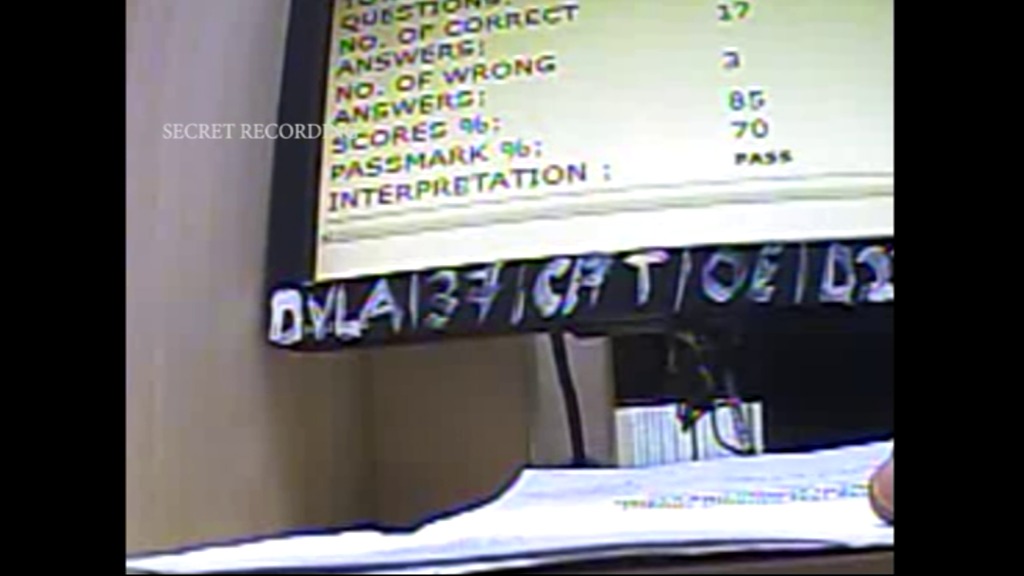
This investigation, however, established that the computerized examination had gaps which became a barrier for license acquisition for a large section of the public who cannot read or write in the English language and the section who could read and write but are not computer literate.
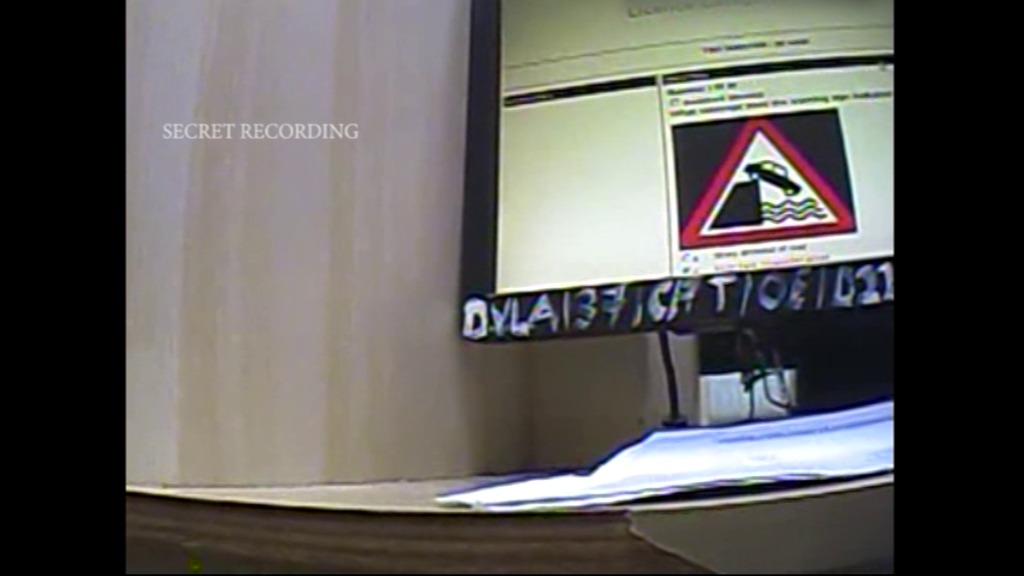
GPRTU’s REACTION
In an interview with Godfred Abulbire , General Secretary of the Ghana Private Road Transport Union (GPRTU), he disclosed that 95% of their 7,100 registered drivers have no computer literacy to be able to sit and pass a computerized examination, hence the union called for the computerized exams to be abolished.
He said: 80% of our drivers have no former education so cannot read and write in the English language. Even the 20% with formal education have just about 5% who are computer literate so majority of our drivers don’t even know how to boot a computer, not to talk of sitting for a computerized examination.
We have written to the DVLA to disclose our concerns to them and we are asking that they abolish the mandatory computerized examination requirement because it is a barrier to our drivers.
Francisca Enchill found that due to the barrier created with the introduction of the computerized examination and the challenge it poses to drivers or potential drivers with no computer literacy, some officials of DVLA have taken advantage of the gap to make offers to applicants to outwit the system to enrich themselves.
After reviewing all the illicit offers made by the officials, the investigator randomly selected two officials at the 37 office, where the 1st DVLA official charged Ghc1,200 and a 2nd DVLA official charged Ghc1,500. In Tamale, an official and his accomplice charged Ghc1,500. All three operate with the help of one person each, who serve as their errand boys.
These DVLA officials in both regions after receiving payment for the illicit deal managed the entire license acquisition process to bend the rules to prevent the applicants from going through all the tests and eventually passed them.
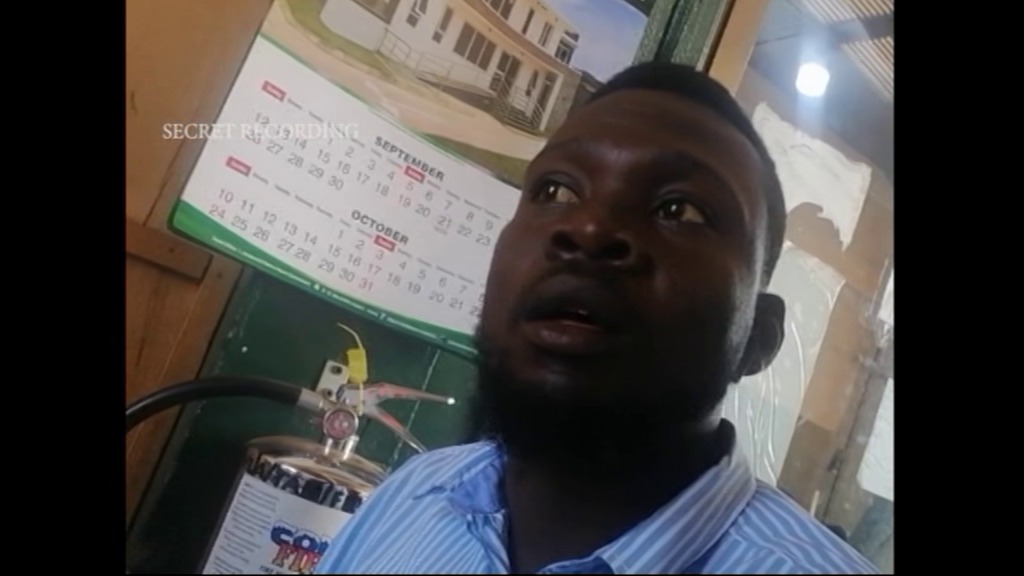
Furthermore, all the three offer similar services at a slightly different rate. The only difference in their mode of operation was that the officials at 37 require their applicants to be physically present for the computerized examination albeit an official answer the question on their behalf.
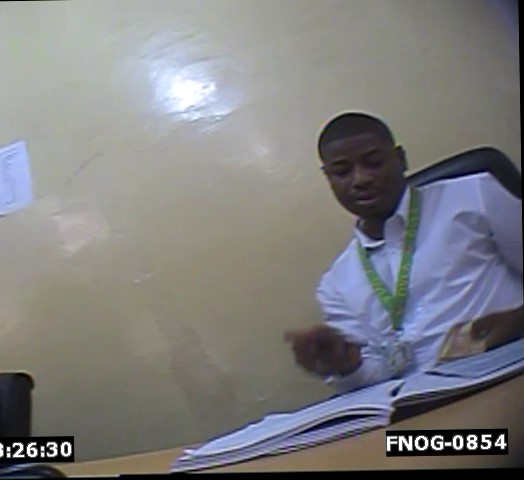
The 1st DVLA official, immediately after receiving the illicit payment of Ghc1,200, vacated his seat and personally took the investigator round to capture bio data from one office to the other. The investigator did not enroll in any driving school but got the reference number to sit for the computerized examination.
EXAMS DAY
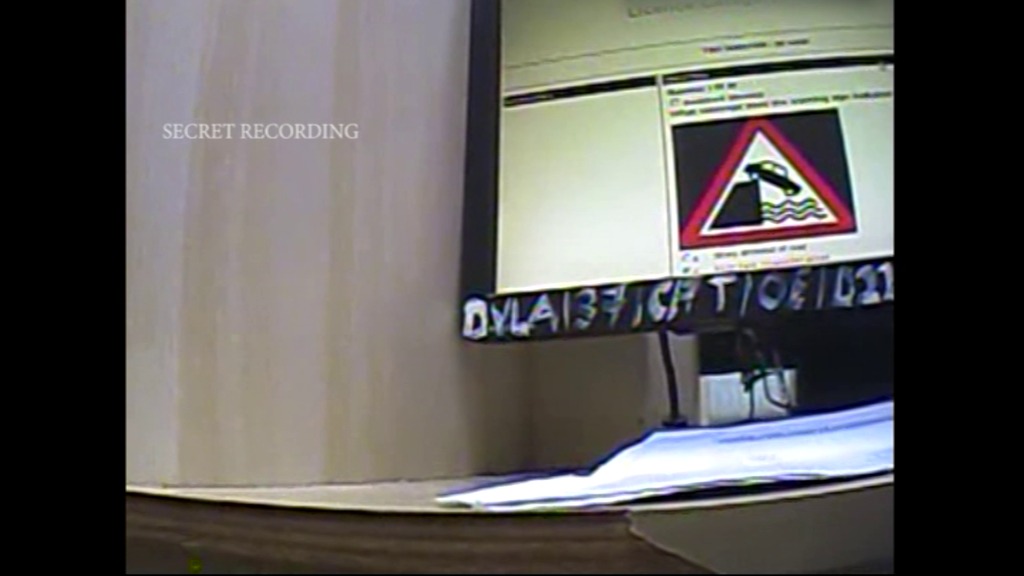
On the day of the computerized examination, the Corruption Watch agent visits DVLA and goes to the official who then gives him documents containing his registration details. Behind these papers stapled together, was a hand-written name which he asked the investigator to show to the examiner and he would be taken care of.
The examiner watched the back of the documents the moment they were handed to him. The Corruption Watch agent was offered a seat and asked not to touch anything.
Minutes later, he went back to the Corruption Watch agent as if he was helping set the computer for the exams to begin but within 1:45 minutes he had answered all the questions on behalf of the Corruption Watch agent instead of the 30 minutes the exam was expected to last and the agent scored 85%.
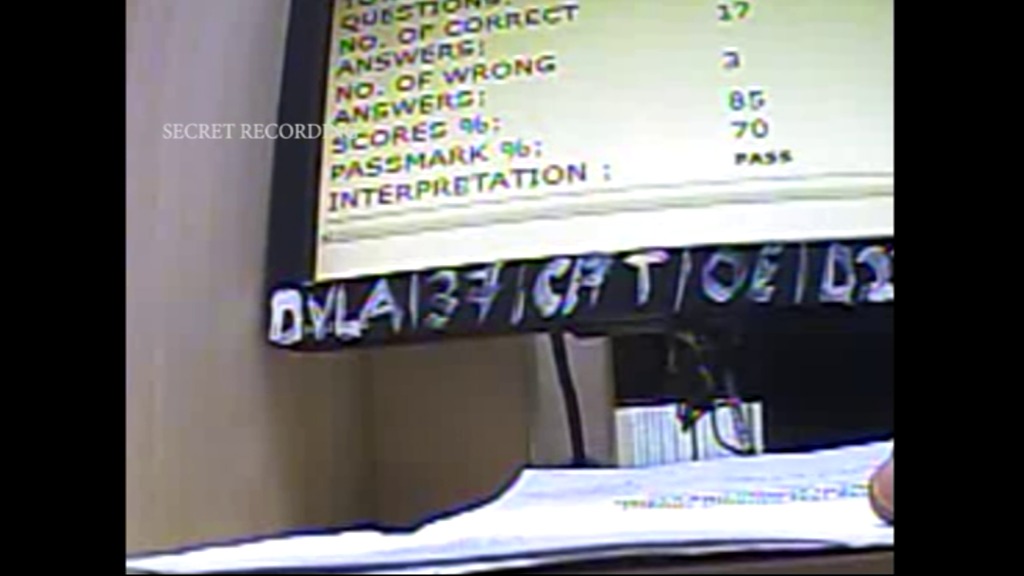
There was no in-traffic test also known as the driving test and no road sign test either but the license was issued.
Aside from using the State-owned facility for private gains, some of these officials at DVLA employ the services of agents who they refer applicants they have swayed to. These agents, then work with DVLA staff in other departments to bend the rules.
On the part of the 2nd DVLA official, the investigator on this particular day visited the client service of DVLA at 37 to enquire about license acquisition. After the response of the official, the investigator asked whether there was no other alternative to the computerized exams to which the official responded by handing the investigator with a piece of paper which had his name and phone number and asked the investigator to call him after work.
The investigator called the official days later and the official disclosed he could aid the investigator to circumvent the system at the cost of Ghc1,500.
The investigator made part payment and the official, whose role at the client service prevented him from vacating his seat for the lengthy rounds with the applicant, introduced the investigator to another gentleman to run the errand of taking the investigator through the process.
The agent takes the applicant to another gentleman who he said was the driving school agent to produce the driving school code for the applicant without attending the school.
He then took the applicant swiftly through the processes, jumping queues and bending the rules amidst fights by other unassisted applicants who had been sitting in the queue all day while others used money to get officials and their agents to jump the queue.
Although the public address system at the premises of the DVLA, repeatedly states it clearly that applicants were to strictly deal with staff of the Authority and go through the right process, the gaps in the system as well as the deceit by some officials make the instruction impossible to heed to.
Aside the variation in the prices of both DVLA officials, the services offered remained the same.
The investigator then contacted the official to enquire about the in-traffic test and road sign test through a text but was informed it had been taken care of.
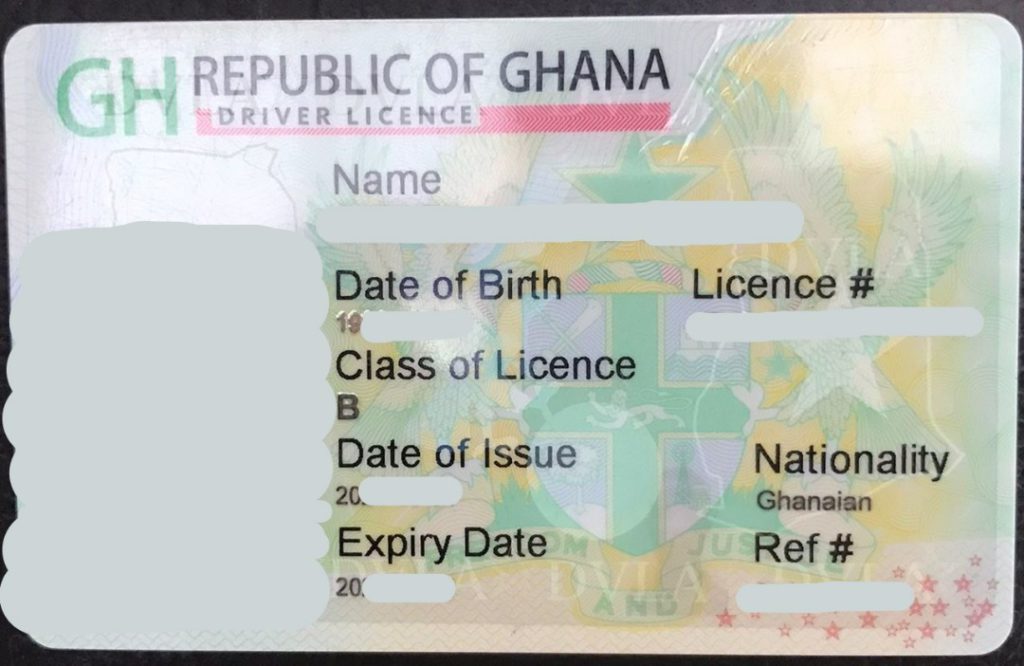
Weeks later, the investigator had acquired a genuine license without any exam.
Tamale DVLA Office
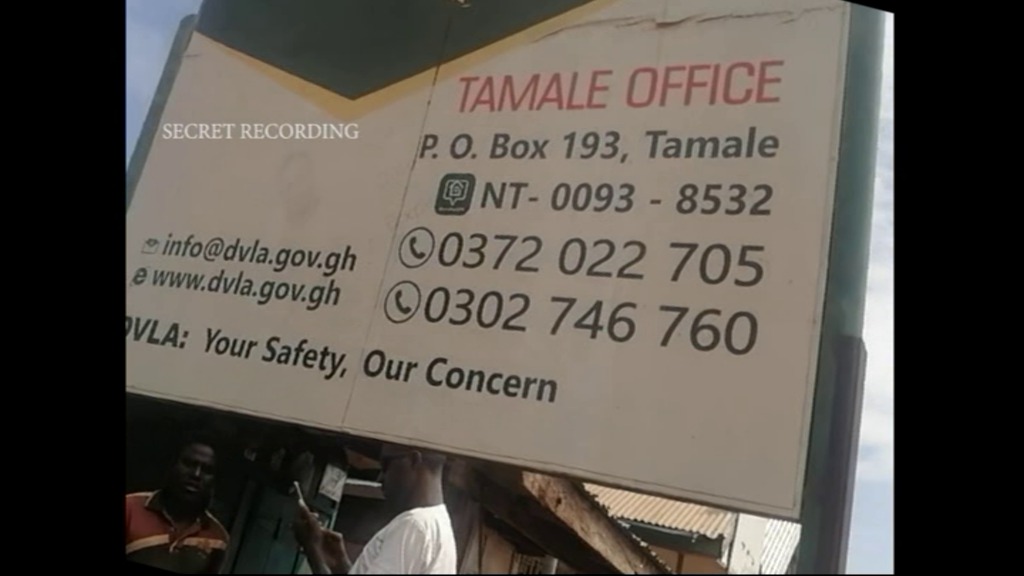
The Tamale DVLA office is very calm, less busy and looks nothing like the Accra Office. After days of surfing the facility, a spot was identified as the fastest point to pull the deal. The deal was swift. At this point, the investigation had established a trend of different people from different DVLA offices charging similar prices for their illicit deal.
Here, the errand boy does the deal while his boss pretends not to be aware of the deal happening right in front of him. The boss (only steps in when finalizing the deal becomes a bargain). According to the agent, failure of the computerized exams was inevitable, insisting that even professors do not pass the exams.
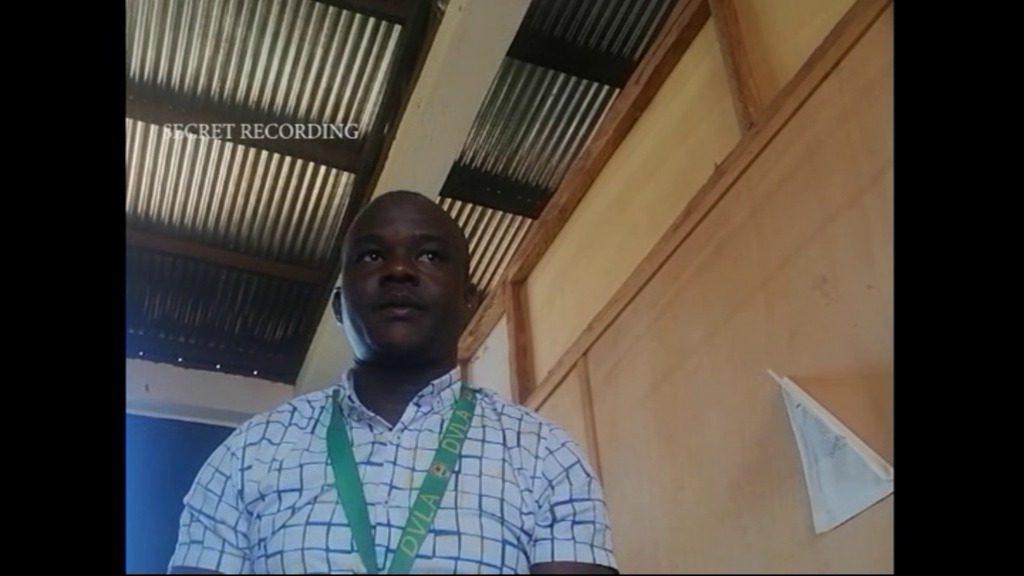
He charged Ghc1,500 which must be paid in full for an express service.
When the investigator insisted on a reduction, the errand boy referred the issue to his boss who according to him had the final say.
Sparingly, the moment the payment was made to the errand boy, his boss immediately vacated his seat and asked the Corruption Watch agent to follow him to start the process.
The offer was the same as the others in Accra. The applicant skips every process after paying. There was a difference in the duration for the temporal license in this case.
What was different in Tamale was that the investigator did not have to be present in the exams hall to pretend to be writing the exams like the Accra officials did. Everything was done by the DVLA officials on the behalf of the investigator.
Ghana Police Service
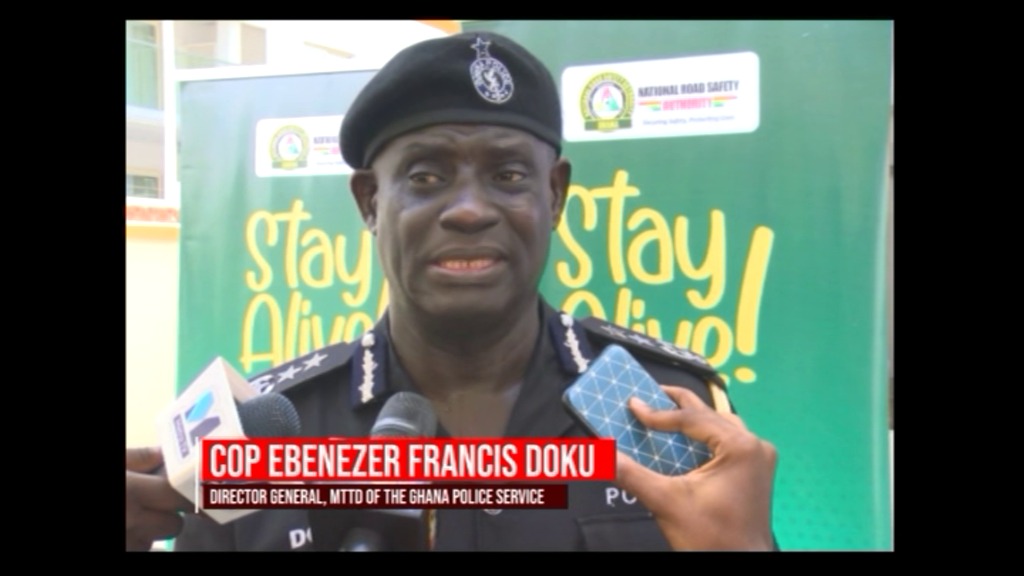
COP Ebenezer Francis Doku, Director General, Motor Traffic and Transport Department (MTTD) of the Ghana Police Service, at press event in Accra, disclosed that it is the responsibility of DVLA as the MTTD is unable to identify which driver had his license through unlawful means once the license is found to be genuine.
THE GOOD ONE
- It is important to note that among the officials encountered in the two regions, only one official at the Tamale Office, Steven Akom, stood out. He was the only DVLA official who declined to make an offer aside the official process and cost. Even when the investigator asked of other alternatives, he insisted the license could not be acquired without going through any of the tests required by law.
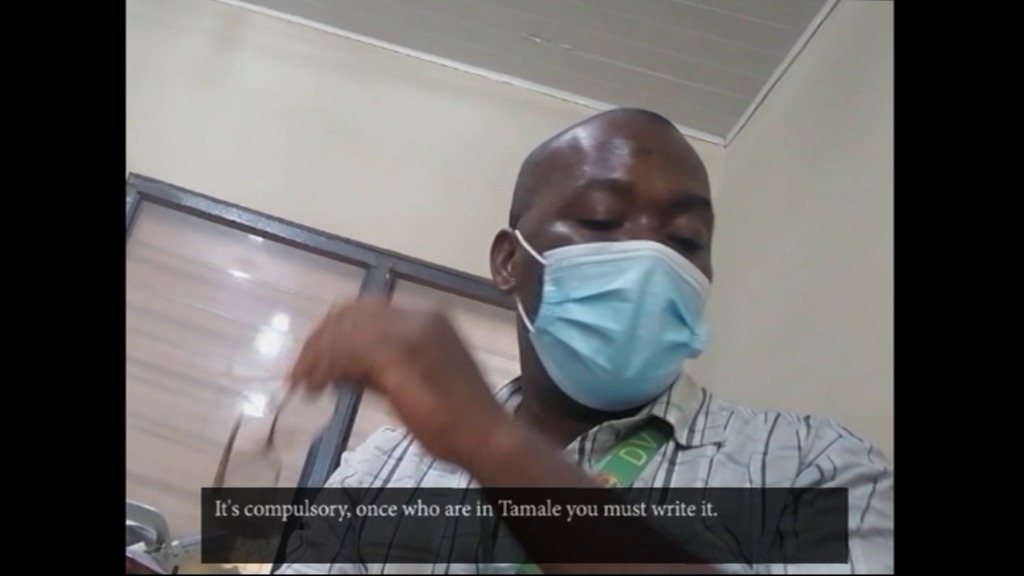
“Pick any driving school around and enroll. Once you are in Tamale, you must write the exams,” he insisted.
As the findings of Corruption Watch’s investigation have shown, the DVLA and the driving schools have to take corrective action to address corruption in the acquisition of driver’s licenses to prevent unqualified drivers from driving on our roads which invariably leads to avoidable road accidents and the resultant fatalities.
PENDING REFORMS
In the case of the language barrier about the exams, which has made some applicants who don’t speak, read or write in the English language unable to write the exam and sometimes used a proxy, it is assuring that the DVLA says it intends to introduce voiceovers in five different local languages for the computerized examination questions.
That change, however, does not yet have a specific date for implementation. It’s been 10 years already since the introduction of the Computerized Examination and still counting.
As the lack of integrity in the driver licensing regime continues and efforts towards addressing these lapses continue, road users must exercise caution on the road to reduce escalating road accidents and deaths.
A Francisca Enchill report
